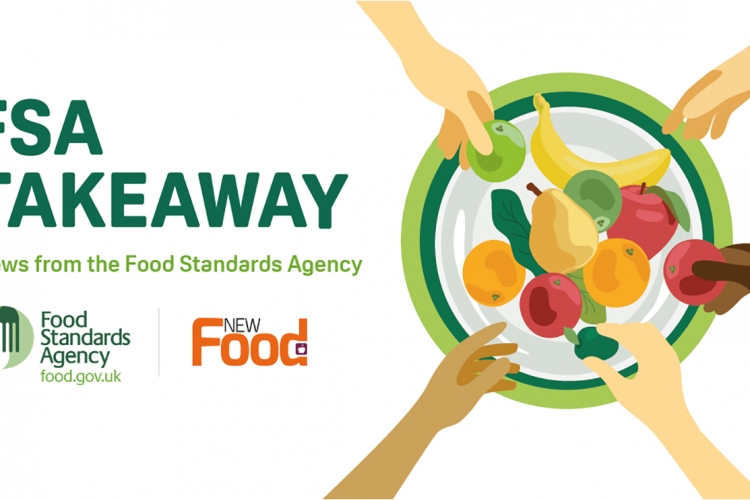Regulated products – an introduction for businesses
- Like
- Digg
- Del
- Tumblr
- VKontakte
- Buffer
- Love This
- Odnoklassniki
- Meneame
- Blogger
- Amazon
- Yahoo Mail
- Gmail
- AOL
- Newsvine
- HackerNews
- Evernote
- MySpace
- Mail.ru
- Viadeo
- Line
- Comments
- Yummly
- SMS
- Viber
- Telegram
- Subscribe
- Skype
- Facebook Messenger
- Kakao
- LiveJournal
- Yammer
- Edgar
- Fintel
- Mix
- Instapaper
- Copy Link
Posted: 19 November 2020 | Mark Willis | No comments yet
Mark Willis, Head of Contaminants and Residues Branch, FSA, outlines some FAQs around the new regulated products process following the end of the Brexit transition period.


In a previous ‘FSA Takeaway’, we discussed the new responsibilities the Food Standards Agency (FSA) and Food Standards Scotland (FSS) would take on after the Brexit transition period comes to a close. This included risk analysis and authorisation of substances in food and feed.
Since then, we’ve hosted two webinars on risk analysis and our new regulated products authorisation process. It was a chance for businesses to meet members of our team and find out how the process will work.
In this article, we take a closer look at the regulated products process and focus on some of the areas of interest raised during these sessions.
The regulated products process – how it will work in the UK
We will use our risk analysis process to assess applications for regulated products and processes intended for the Great Britain (GB) market. To minimise disruption, regulated product applications will be based on the process and requirements at EU level. Under the Northern Ireland Protocol (NIP), regulated products for sale on the NI market must continue to use the EU market authorisation process for food and feed to comply with EU regulations.
After an application is submitted, checks will be made to make sure it has all the necessary information needed for the FSA and FSS to complete a risk assessment and make risk management recommendations. Where clarification or additional information is needed at any stage, we’ll get in touch with the applicant.
Once an application is validated it will be passed to risk assessors who will work with the independent scientific advisory committees (SACs) and joint expert committees (JEGS) to carry out an assessment to decide if the product or process is safe for the GB market.
Based on this and considering any other legitimate factors, we will consider the risk management options and then make a recommendation to Ministers, who will decide if the product should be authorised. Where a decision is taken to authorise a substance, this will be implemented through new legislation via the usual processes.
New applications, changes and renewals
If a product or process is already authorised by the European Commission and the necessary legislation is in place and applies by the end of the transition period, then that authorisation will remain valid in the UK. Any regulated product that is authorised or adapted in the EU after this period ends will not be valid in GB. For these, a separate application will need to be made to us for authorisation on the GB market.
However, the application can be the same as that already submitted to the EU, along with any additional information or data submitted during the process.
Applications to the FSA/FSS process can be submitted from 1 January 2021. At this time, a link will be posted on the FSA website to allow the application to be started. Applicants do not need to be based in the UK.
While we will require an application request and dossier to be submitted for any applications already under consideration in the EU, we may provide recommendations to Ministers based on a European Food Safety Authority (EFSA) opinion, where that has already been published but which (where justified) may require further assessment.
There are some types of regulated products and processes where the EU process of evaluating applications has been underway for some time, but where the positive lists are not yet in place. For example, food enzymes, recycled plastic processes, and active and intelligent food contact materials. While we are happy to receive applications from 1 January 2021, we will provide further guidance for businesses in due course to allow applications to be submitted in time for consideration of any future positive list.
Re-evaluation and re-authorisation
Some regulated products are subject to review and re-authorisations every 10 years, specifically feed additives, GM foods and smoke flavourings. These require a new application to be submitted during a defined period before the end of the 10-year period.
For those applications due to be submitted from the 1 January 2021, these should be submitted via the FSA website in-line with the deadlines laid down in legislation.
For those which have already been submitted to the EU before the end of the transition period, we recommend that these are also submitted to us in due course, to support ongoing retention of these substances on the GB market.
Further guidance
A searchable list of permitted products will be made available on the FSA website to show what is permitted. Initially, this will only list approved animal feed additives and genetically modified (GM) food and feed authorisations. However, it will be extended to cover all regulated products, and possibly, other controls, such as contaminants, in due course.
In the meantime, we recommend businesses keep up to date by reading our guidance on regulated products on food.gov. Please see:
- Requirements for regulated product applications from 1 January 2021
- Submitting a regulated product authorisation applications from 1 January 2021
About the author
Mark Willis has headed up the Food Standards Agency’s Chemical Contaminants and Residues Branch since 2016. Prior to that, he worked in and then lead the Food Additives, Flavourings and Food Contact Materials Branch. He has been a British civil servant for over 20 years, starting at the Ministry of Agriculture, Fisheries and Food (MAFF) in 2000, just prior to the formation of the Food Standards Agency in April that year. He has previously worked in a range of policy roles including on food additives, flavourings and nutrition and general labelling. Between 2005 and 2009 he undertook a secondment into the European Commission as desk officer on food additives and the development of the new food additives regulation.









